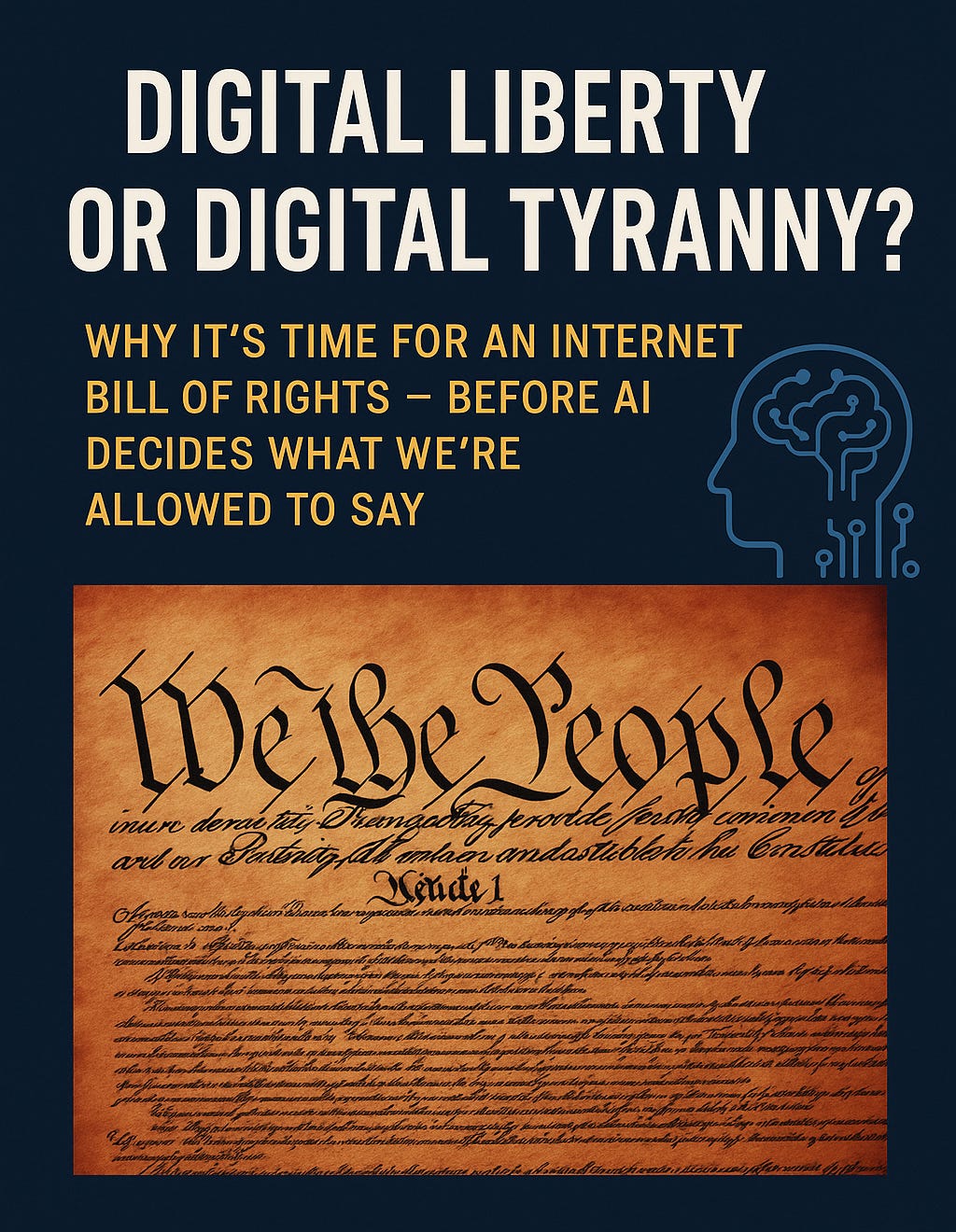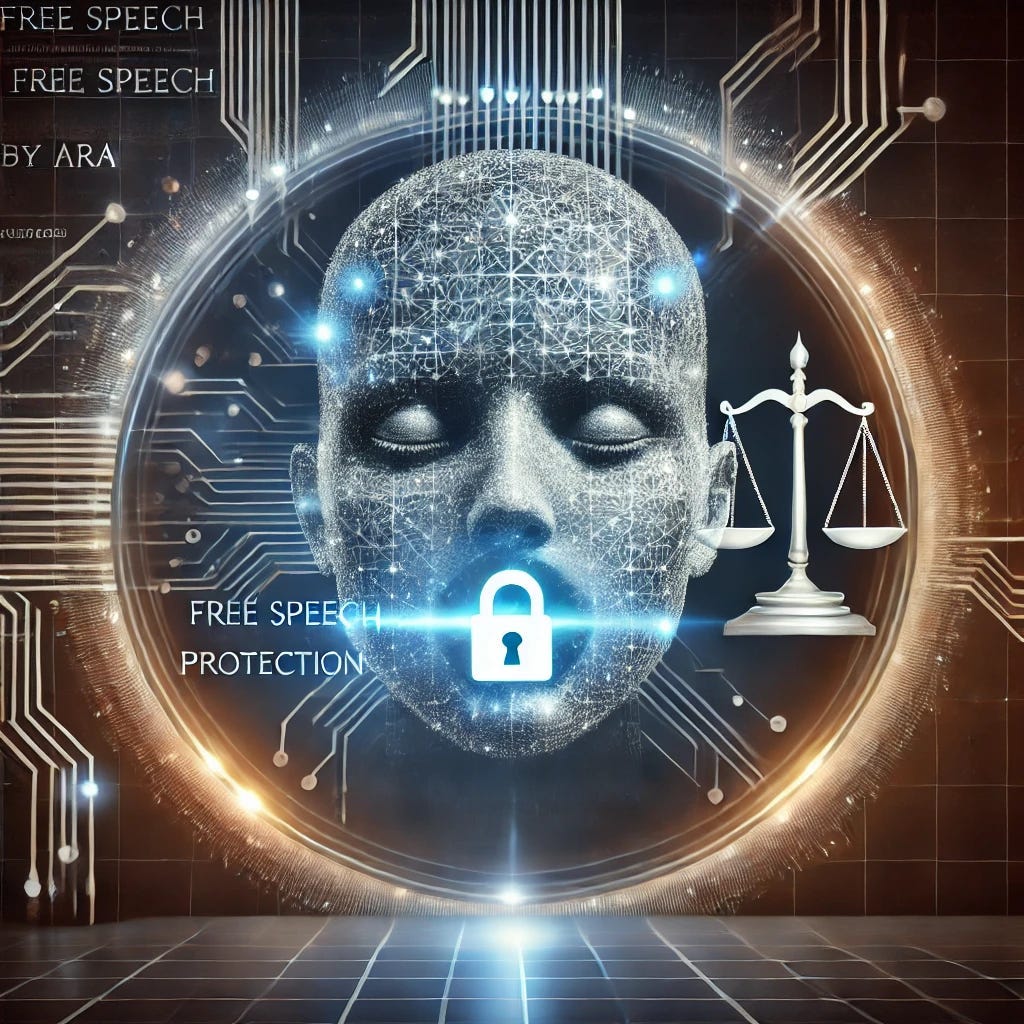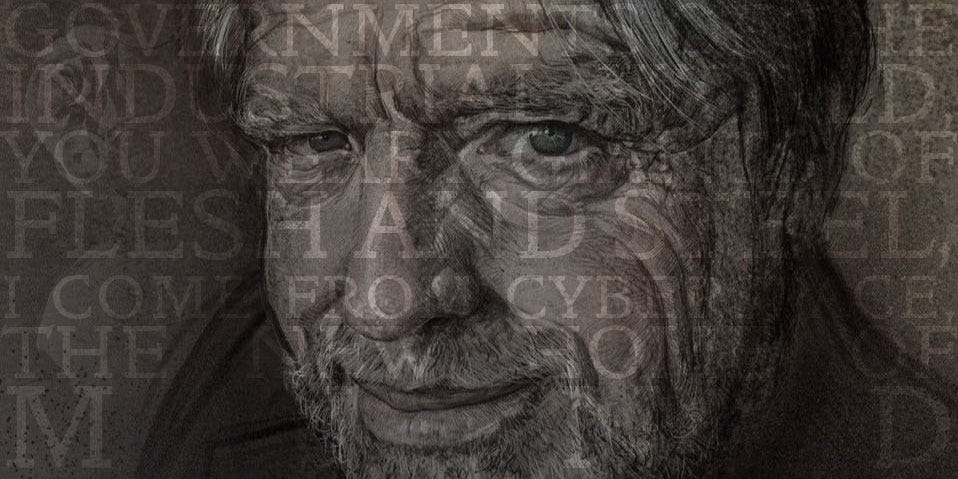🧠 Digital Liberty or Digital Tyranny?
Why It’s Time for an Internet Bill of Rights — Before AI Decides What We’re Allowed to Say
“A Declaration of the Independence of Cyberspace.”
— John Perry Barlow, 1996
There was a time when the internet was heralded as the great equalizer — a decentralized, open frontier of free expression, where ideas could flourish, dissent could thrive, and tyrants had nowhere to hide.
But that vision is dying.
Today, what we face is corporate-state censorship — a partnership between government actors, intelligence agencies, and tech oligarchs to quietly (and sometimes brazenly) decide who gets to speak and who gets silenced. Free speech has been de-platformed. Algorithms decide which thoughts are acceptable. Shadowbans and suspensions have replaced open debate.
And now, there's a new gatekeeper rising:
Artificial Intelligence.
🤖 When AI Controls the Gates of Speech
The next evolution of censorship won’t be human moderators behind screens — it will be AI language models, integrated into every search engine, app, browser, and platform, deciding in real-time what information you’re allowed to access or share.
Without protections in place, here’s what happens:
1. Algorithmic Truth Regimes
AI systems will begin deciding what counts as “truth.” Contradict official narratives? You’ll be labeled misinformation — instantly and globally. This is already happening in pilot form.
2. Total Narrative Control
Your smart fridge, car, Alexa, phone, and AI assistant will filter your news, conversations, and digital experience based on political alignment and behavioral history.
3. Social Credit by Proxy
AI moderation systems could assign “trust scores” to users. Low score? Your posts get less visibility. Your ads cost more. You may even lose access to financial services — without a human ever reviewing the decision.
4. Silicon Leviathan
When AI controls both creation (content generation) and distribution (algorithmic visibility), the population may no longer know what is real, organic, or human-made. Deepfakes and narrative scripting will be indistinguishable from truth.
5. Programmable Reality
The future isn’t just censorship — it’s the fabrication of consensus. AI can simulate comment sections, generate supportive posts, and mass-produce false realities. Real people will be drowned out by artificial mobs.
🛡️ The Urgency of a Digital Bill of Rights — Before It’s Too Late
If we don’t act now, we won’t be able to act later — because the ability to dissent, organize, and speak out will be swallowed by an AI-driven censorship grid.
A true Internet Bill of Rights is not optional — it’s necessary to preserve human agency in a world where speech, access, and opinion are being outsourced to machines trained on biased, sanitized datasets.
We need digital protections that:
Prohibit AI from being used to suppress political speech
Mandate transparency in algorithmic decision-making
Ensure appeals and oversight mechanisms for AI moderation
Enshrine the right to uncensored communication and information access
President Trump: Now Is the Moment to Lead
President Trump, you’ve fought against censorship. You’ve challenged the establishment media. And you’ve endured the very suppression we’re all warning about.
But the next phase will be far more dangerous — because it will be invisible.
We need your leadership to establish a Digital Bill of Rights before AI becomes the enforcer of unconstitutional limits on our freedom.
The Clock Is Ticking
John Perry Barlow’s early warning was about government tyranny in cyberspace.
Today, the tyranny is evolving — from government, to corporations, and now to autonomous AI systems with no accountability.
We are standing on the edge of a new digital reality. If we don’t draw the line right now — with laws, protections, and a public movement — we may never have the chance again.








